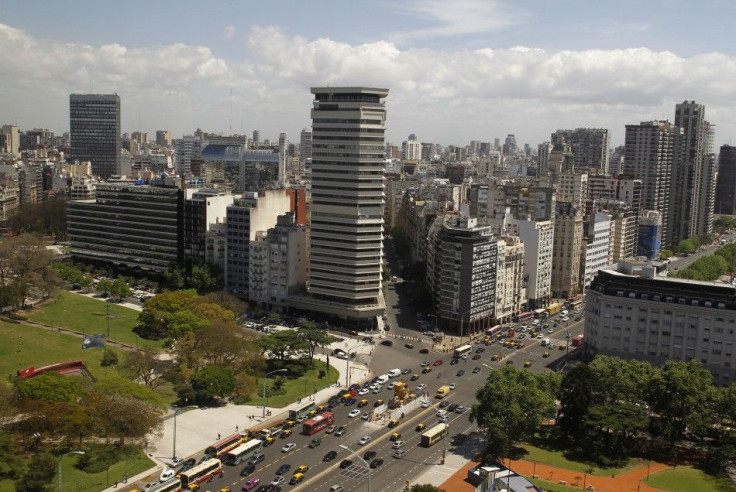Argentina Commences Biggest Trial Related to 1976-1983 Dirty War

An Argentine court is commencing a massive trial that will seek to shed light on one of the most painful and violent chapters in the country’s long history -- the so-called Dirty War of 1976-1983, which witnessed the abduction, disappearance and death of some 30,000 people at the hands of the military junta.
A total of 68 former military officials are facing 800 criminal charges, including murder and torture, before some 900 witnesses.
In 1976, the military overthrew the government of President Isabel Martinez de Peron and enacted a horrific purge of Argentines they suspected as enemies of the state, particularly leftists and students.
The court will also hear testimony regarding the activities that went on at the Naval School of Mechanics (Esma) in Buenos Aires, which served as one of the military regime’s most notorious detention camps. An estimated 5,000 people were reportedly tortured and killed in the facility. Few survived the camp’s horrors, and the bodies of most that perished have never been found. Other victims were sedated, put on airplanes and tossed into the watery graves of the Atlantic Ocean.
Eight of the pilots of these “death flights,” including former naval lieutenant Julio Poch and former naval captain Emir Sisul Hess, will face justice for the first time.
Litigation against the perpetrators of the Dirty War has actually gone on -- with stops and starts -- since 1983 when civilian rule was restored to Argentina. In 1986, President Raul Alfonsin cancelled trials; subsequently, amnesty was granted that year and the next, voiding some convictions.
It was not until 2003 that the amnesty laws were overturned. Since then, a number of senior regime officials, including Reynaldo Bignone and Gen. Jorge Videla, have been convicted of their crimes, including murder, kidnapping and torture.
Some 250 people have already been convicted, including Alfredo Astiz, the "blonde angel of death," who received a life sentence last year. He served as navy captain based at Esma. His many victims included two French nuns and three members of the Mothers of the Plaza de Mayo, a human rights group established to locate relatives kidnapped by the state security forces.
“Justice is being delivered at last to these families, sending a strong message that this kind of abuse will never again be tolerated," Guadalupe Marengo, deputy Americas program director at Amnesty International, declared in the wake of Astiz’s conviction last October. "Although more than a quarter-century has passed since the Dirty War abuses wracked Argentine society, the victims’ demands must be honored by bringing all those responsible to justice.”
"Argentina is really showing that we don't have to live with impunity. ... The most important argument about the Argentine experience of today is that these things don't go away," one of the victims of the Dirty War, Juan Mendez, a lawyer and now the U.N. special rapporteur on torture, told the BBC. "Thirty years later, the wounds are still open, the victims are still there, they will continue to press, and you will just have to deal with it later."
© Copyright IBTimes 2024. All rights reserved.





















